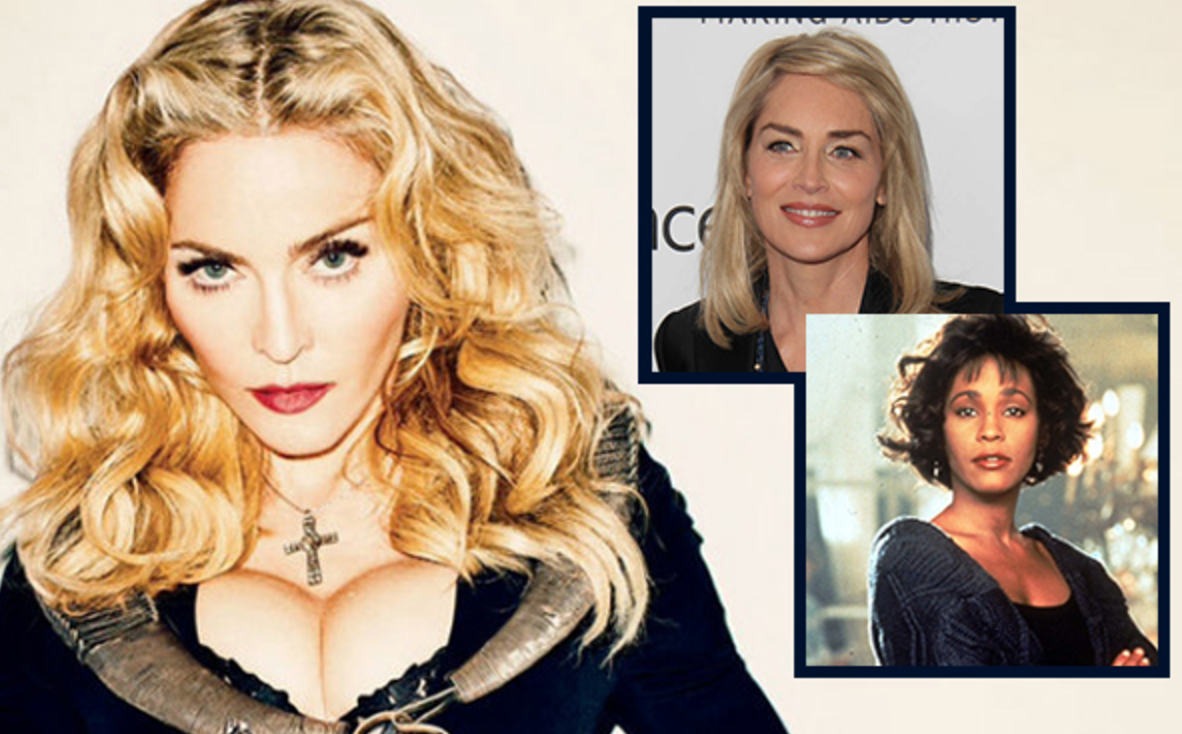Madonna herself has been called by the most damning of her critics such usual derisive adjectives as “derivative,” “hack” and, Morrissey’s favorite, “McDonna.” Yet what they’re condemning isn’t her work, but her personality, lifestyle and the so-called audacity of a woman to treat men the way they do females. Or, at her most innovative, treat gay men like straight men in Truth or Dare. Likewise, what Madonna was and is condemning in yet another (on the heels of one she received from Tupac being splashed across the internet) private letter recently released to go up for auction isn’t necessarily the mediocrity of Sharon Stone and Whitney Houston she decries to actor John Enos. Rather, it’s about the rarity of an artist willing to push the envelope “too much” for fear that it will affect sales and relevancy. At the time Madonna penned this letter, it was after the release of her Sex book, Erotica album and filming the universally panned Body of Evidence. Of her frustration over the puritanically-driven backlash, she wrote, “I have made so many people angry that I’m being punished and basically made to be quiet and sit in a corner, whole other less interesting and exciting people are reaping the benefits of the roads I’ve paved.”
And yes, she had already paved a lot of roads unacknowledged by most on the basis that she was a soulless nymphomaniac. That Whitney Houston starred in The Bodyguard on the laurels of a built-in symbiotic soundtrack/movie moneymaking model was no doubt vexatious to Madonna, who had already done the same in the 80s with Desperately Seeking Susan and Who’s That Girl. Not to mention the fact that Madonna was pretty much living the plot of The Bodyguard with Jim Albright already. In addition, at around the same time, Sharon Stone starred in a similarly trashy erotic movie thriller–Basic Instinct–as Body of Evidence, got applauded for flashing her snatch (1992 was a very sexual year for the movies, remember) and making iconic cinema history. Madonna, on the other hand, was written off as inconsequential no matter what–treated as though because she had her place in the sun for so long with the one-two punch of “Vogue” and the Blond Ambition Tour, nothing she could say or do now would compare, or be as artistically relevant.
And yet, decades later, the barriers broken down and taboos shattered by this era of hyper-sexuality in Madonna’s career can’t be ignored. Her scorn for the major stars mentioned in the letter speak to a larger grievance with what the public prefers to glom onto when it comes to mass media and culture. Only a very small sect is willing to look beyond the surface, to appreciate irony (now, instead, they treat irony as a requisite for daily interaction, whittling its value away down to nothing). As a result, that which is lauded and put on a pedestal tends to be, well, rather maudlin (yes, even La La Land).
And Madonna resented this “not because I want to be these women because I’d rather die, but they’re so horribly mediocre and they’re always being held up as paragons of virtue and some sort of measuring stick to humiliate me.” Since this dark period of questioning her place and the opinions of others affecting her so deeply, thank baby J Madonna found Kabbalah (another thing she paved the way for so that pop stars like Kesha could embrace some of its more basic tenets). For the burial of her annoyances with what Stone and Houston represented in that period–blandness tailor-made for public consumption–gave her the confidence to carry forward after realizing, “Everything I do is so original and unique and I put so much of myself into it like my book and record and it’s only brought me heartache and pain.” And yeah, to be honest, this happens more than ever in essentially every facet of the arts–“literature” and painting especially. Tripe is revered because it’s what the powers that be deem ought to be, and the public doesn’t care enough to question it or think for itself. Luckily, there is someone like Madonna, willing to challenge and take risks even this far down the line–not just in her life, but in the face of the consistent deterioration of taste in favor of the ease of taking adequate content as gospel.
And though Madonna’s more petulant, youthful self might have been filled with something like envious rage, she had the strength to know the difference between quality and what the masses actually enjoy. Because, even before Kabbalah, adopting a brood of Malawians and starting to bang younger dudes, Madonna always knew, “I don’t think I can play the game to be accepted. I’m too intelligent, I have too much pride.” The deadly sin that drives an artist like Madonna to continue challenging the basiques.





















